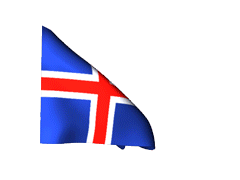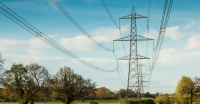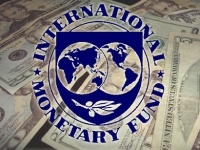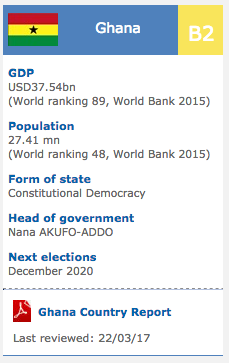Iceland: Iceland Outlook for 2013-14
2013/11/02
 The country (Iceland) is situated in Northern Europe, island between the Greenland Sea and the North Atlantic Ocean, northwest of the UK.
The country (Iceland) is situated in Northern Europe, island between the Greenland Sea and the North Atlantic Ocean, northwest of the UK.Land in Iceland is typically plateau interspersed with mountain peaks, icefields; coast deeply indented by bays and fiords.
The climate is temperate, moderated by North Atlantic Current; mild, windy winters, damp, cool summers.
English, Nordic languages, German widely spoken.
Outlook for 2013-14
- The governing coalition of the Social Democratic Alliance (SDA) and the Left-Green Movement (LGM) is divided and lacks a parliamentary majority.
- Nonetheless, the Economist Intelligence Unit expects it to stay in office until the next general election, due in April 2013.
- The Independence Party (IP) is then expected to become the largest party again, and is likely to form a coalition with the Progressive Party (PP).
- EU accession is not expected to materialise, either because a new IP-led government would oppose EU membership, or because it would be defeated in a referendum (which is currently unlikely to be held).
- As a result of the government's fiscal austerity agenda, we expect the budget deficit to shrink further, to 2% of GDP in 2013 and 1.2% in 2014, from an estimated 3.1% in 2012.
- We forecast that real GDP growth will slow to 1.7% in 2013, especially as domestic demand weakens, compared with estimated growth of 2% in 2012. Growth should then accelerate slightly in 2014, to 2.1%.
- After estimated average inflation of 5.2% in 2012, we expect inflation to moderate to 4.1% in 2013 and 3.8% in 2014 amid higher interest rates.
Review
- In October the ruling coalition lost its one-seat majority in parliament when Robert Marshall (SDA) joined a new left-leaning party, Bright Future (BF).
- An opinion poll in early November revealed the highest support for the government since the beginning of the year. However, the IP (first in the polls) and the PP were still on course to win the election in April.
- The European Parliament and the Council of Ministers approved rules that will allow the European Commission to impose a ban on imports of fish from overfished stocks into the EU, including exports from Iceland.
- In order to address elevated inflation, the Central Bank of Iceland raised its policy interest rate by 0.25 percentage points, to 6%, on November 14th.
- In November consumer price inflation rose to 4.5% year on year from 4.2% in October, amid the ongoing weakness of the krona.
- Nominal wages rose by 5.1% year on year in October, down from 5.7% in September and a peak of 12.1% in March.
The political scene
After an era during which divisions in the SDA-LGM government and mainly within the LGM seemed to have cool down, pressures came to the fore another time when 3 LGM members of parliament voted against the 2011 budget, dipping the government's majority to only. Support for the SDA has improved slightly, but the formerly dominant IP again has additional support than any other party.
Economic policy
A provisional accord was signed in December between an Icelandic negotiating team and the administrations of the UK and Netherlands on the argument over Icesave, the Internet arm of a failed bank, Landsbanki. This accord would decrease the interest costs to Iceland substantially compared with the transaction that was before rejected in a referendum. The government has finalised its proposals to alleviate household debt. The Central Bank of Iceland has reduced its effective interest rate further.
The domestic economy
GDP improved in the third quarter of 2010 against the previous quarter after quarters of continuous decline, but underlying request remains weak. Unemployment has stabilised at 7.5% but has been helped by emigration and part-time working. Inflation has fallen to 2.6% and wages have recently been rising above inflation in contrast to before in the year.
Foreign trade and payments
National accounts figures illustrate real exports of goods and services as declining while imports have increased. However, in nominal terms, exports have grown additional strappingly and the trade surplus has risen. The current account was as well in surplus in the third quarter.

- Related Articles

Climate change laws around the world
2017/05/14 There has been a 20-fold increase in the number of global climate change laws since 1997, according to the most comprehensive database of relevant policy and legislation. The database, produced by the Grantham Research Institute on Climate Change and the Environment and the Sabin Center on Climate Change Law, includes more than 1,200 relevant policies across 164 countries, which account for 95% of global greenhouse gas emissions.
Brexit negotiations should treat energy as ‘special case’
2017/05/14 There are strong practical reasons why the UK and EU should treat energy as a appropriate case during Brexit negotiations, argues a new statement. The statement, jointly authored by Chatham Home, the University of Exeter and the UK Energy Research Centre (UKERC), says finding common ground on energy during the Brexit negotiations would benefit both the UK and remaining EU27, while compromise may be relatively easier to achieve than for other areas.
IMF Executive Board Concludes 2013 Article IV Consultation with Iceland
2013/08/10 On August 1, 2013, the Executive Board of the International Monetary Fund (IMF) concluded the Article IV consultation and third Post Program Monitoring discussions with Iceland.
- Iceland News
-
- AFGHANISTAN: UNWTO: International tourism – strongest half-year results since 2010
- ALBANIA: US LNG exports make European market more competitive
- AFGHANISTAN: Higher earning Why a university degree is worth more in some countries than others
- ALBANIA: Europe in 2016: Terror fears, migration, politics. But economy may turn a corner
- AFGHANISTAN: Global growth will be disappointing in 2016: IMF's Lagarde
- AFGHANISTAN: Revised IMF forecasts signal gloom on global economic outlook
- Trending Articles
-
- CHINA: China welcomes Guinea to take part in Belt and Road Initiative
- CAMEROON: Poor End of Year Results for Cameroon Students
- CHINA: Chinese-supported infrastructure projects change Zambia's landscape
- UNITED STATES: Spotify, Hulu target students with discounted bundle
- UGANDA: Ugandan Govt Starts Verifying International Academy Teachers
- AUSTRALIA: Queensland Bauxite Gains State Approval of Mineral Development Work Program














